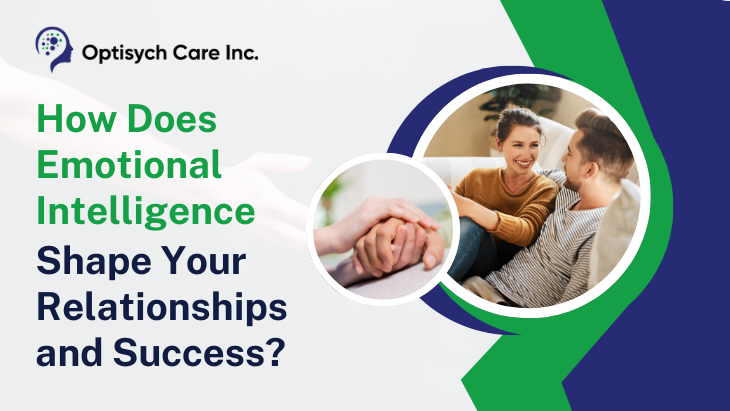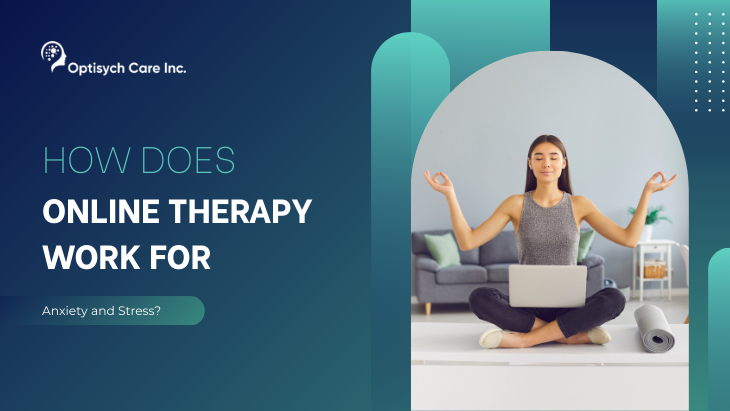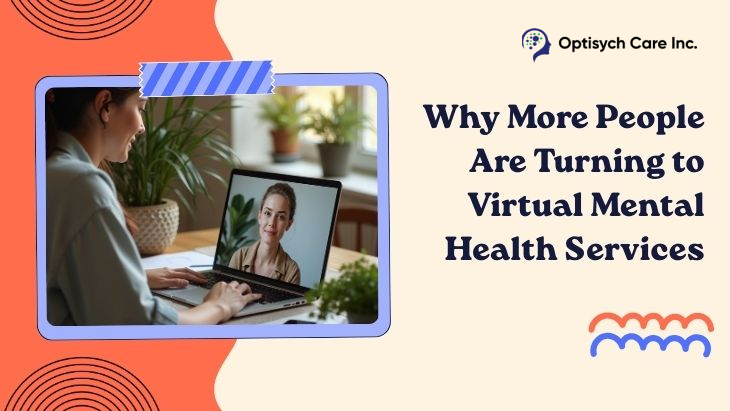Whenever individuals consider success, the first aspect that tends to come to mind is intelligence. Technical skills, degrees and high test scores are traditionally regarded as the measure of success. However, with time, studies have also shown that not all is about IQ, taking success into consideration. Rather, there is a different kind of intelligence, emotional intelligence (EQ), that is very instrumental in determining the way we live, work and relate to others.
Emotional health is not simply being good with people. It has to do with learning to feel yourself, learning to control your feelings and learning the feelings of the people around you. Such skills influence all aspects of life, such as how you manage stress and your ability to move through relationships and work challenges.
This blog examines the importance of emotional intelligence in both personal and professional life, reasons why EQ is important, its impact on relationships and why it is a key to success in the long term.
Emotional Intelligence (EQ) Concepts.
Emotional intelligence can be described in the simplest terms as the skill to recognise, perceive, and control, as well as to determine and shape emotions (yours and others). It consists of five essential elements that break it down into what were pioneered by psychologists Daniel Goleman and Peter Salovey:
Self-Awareness: This is the capacity to identify and assess your feelings, triggers and the effect they have on other people.
Self-Regulation: Awareness of impulsive emotions and behaviours and the ability to remain calm in stressful situations, as well as to change based on the situation.
Motivation: Remain goal-orientated even when we are frustrated, and always have a positive outlook.
Empathy: Being able to feel the feelings, needs and perceptions of other people and act kindly towards them.
Social Skills: creating healthy relations, resolving conflict, and motivating cooperation.
Contrary to the IQ, which is more or less fixed, the EQ is an ability that can be enhanced with time. IQ allows solving problems, but EQ dictates how you approach difficulties and how to work with people, as well as how to be emotionally healthy during it.
Personal Relationships and Emotional Intelligence.
Emotional intelligence is usually best evident in how we relate to others, be they family, friends or partners.
Empathy develops trust and intimacy. When you realise the feelings of other people and acknowledge them, you establish secure environments in which people feel appreciated. As an example, attendance to a loved one when he or she is in a hard situation will consolidate the relationship.
Self-regulation is the basis of the conflict resolution. Emotionally intelligent individuals take their time and respond in a calm manner instead of reacting with anger when there is some disagreement between them and the other party.
By being sensitive to non-verbal communication, e.g., body language, tone or facial expression, one can understand more. Catching minor emotional changes helps to avoid miscommunication.
Building relationships by understanding. Another relative with emotional awareness will be in a better position to help other members, preventing stress and increasing intimacy.
These attributes enhance the strength of personal relationships even in stress or conflict situations.
The Use of Emotional Intelligence in a Career.
Technical knowledge is sometimes outshone by emotional intelligence in the workplace. It dictates the way that leaders can lead teams, the way employees will cooperate, and how organisations will cope with challenges.
Leadership: EQ is the type of leader that inspires loyalty and motivation. They hear and understand the worries of the employees and provide enabling work environments. This increases team performance.
Teamwork: A work environment flourishes when teammates know each other, along with their strengths, weaknesses and feelings. Teamwork is smoother and is more productive with emotional intelligence.
Decision-Making: The high EQ enables professionals to be rational and emotional at the same time. An example is that it is equally as important to think about how a business decision will impact on team morale as to analyse financial data.
Resilience: There is work life full of stress, disappointments and swift changes. Being emotionally intelligent, they recover quicker and their emotional well-being is not affected in the process, yet they remain focused on seeking solutions.
The Correlationship of EQ and Communication.
Emotional intelligence cannot be done without good communication.
• Active listening makes the other person feel as though he or she is heard and understood.
• Supportive reactions can be used to avoid confusion and to show respect.
• Being aware of your and other people's emotional triggers helps keep the conversation out of a conflict.
• Clearness in communication enhances the personal and professional interaction in the sense that ideas are not only communicated but also received favourably.
Essentially, EQ enhances communication, as it does not only focus on words but also on feelings and comprehension.
Benefits of High EQ
The working benefits of having a healthy emotional intelligence are far-reaching:
Improved emotional health: Stress management and emotional regulation result in improved mental health.
Good problem solving: High-EQ individuals are flexible and creative in tackling things.
Relationships built on trust: Active listening and empathy help in the establishment of long-term and meaningful relationships.
Career development: Promotions to leadership roles Developmentally, high-EQ professionals are viewed as more competent to handle staff and achieve performance.
Can EQ Be Developed?
Emotional intelligence is not predetermined like IQ. It may be developed by persistent work:
• Both self-reflection and mindfulness can help to discover emotion patterns and triggers.
• The skills of empathy, even on a simple, everyday level, facilitate the practice of connecting with people.
• Requesting feedback will enable them to get a picture of the perception of others about their emotional reactions.
• Activities such as journaling, meditation, or role-play activities enhance self-understanding and social skills with time.
Any person can improve his or her EQ with a conscious effort and, consequently, emotional health.
Challenges of Low EQ
Poor emotional intelligence usually causes problems in personal and work life:
• Lack of empathy, which leads to a lot of misunderstandings in the relationships.
• Explosion of a conflict due to lack of self-regulation in case of disagreement.
• Weak leadership Leaders do not inspire or relate with teams.
• Emotional stress and burnout because of the inability to control the emotions.
These issues present the relevance of EQ in protecting harmony and strength.
The EI of the Present-Day World.
Emotional intelligence is more relevant than ever in the modern society, which has switched to a fast-paced and digital-first society.
• Virtual communication and remote work involve the ability to read emotional signals through the screens, and EQ is critical in the development of team cohesion.
• Emotional intelligence gains more and more influence in recruitment and promotions as corporations understand the importance of empathy and teamwork in long-term prosperity.
• Challenges of the digital age: As the interactions are increasing on the internet, EQ will see to it that one can communicate in a respectful, understanding, and effective way.
To put it briefly, emotional intelligence is turning out to be as essential as technical competence in the success of the contemporary world.
Conclusion
One of the things that define a relationship and success is emotional intelligence. It influences our way of relating with others, our approach to facing challenges and our emotional well-being in a world that is very demanding. Equity is central to growth and stability, whether it comes to conflict resolution or team leadership and meaningful relationships.
The silver lining is that emotional intelligence is not born to us—rather, we can grow it through experience and being conscious of it. Through investment in self-reflection, empathy and communication, people can enhance their emotional wellbeing and open up to more plentiful relationships and career prospects.
Professional guidance can help those who want to be organised in their process of enhancing their emotional intelligence and well-being. Such services as Optisych Care are the way to improved self-awareness, healthier relationships and success in the long run, which proves that emotional development is as significant as intellectual development.






Leave a reply